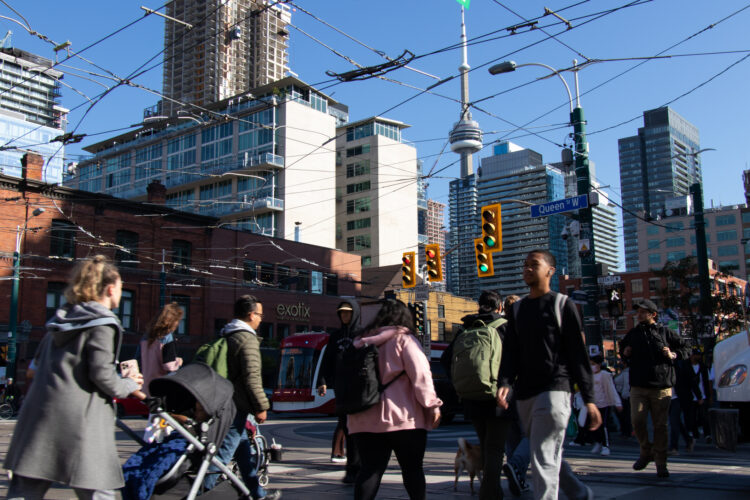Bell Let’s Talk’s 2024 campaign, “Let’s create real change” opens a crucial conversation about taking lasting action to address the mental health crisis.
Worrisome mental health trends are being observed globally and in Toronto.
According to Toronto Public Health, the number of Toronto residents reporting very good or excellent mental health has fallen from 71 per cent in 2017 to just 55 per cent in 2021. The use of mental health and addiction-related services is on the rise, and the city continues to grapple with a drug toxicity crisis, with a 271 per cent increase in opioid toxicity deaths between 2015 and 2022.
Torontonians are also feeling less socially connected, experiencing diminishing social support networks, participating less in community organizations, and facing rates of loneliness higher than other major Canadian cities. These adverse trends in mental wellness are impacting younger and older populations alike.
Bell’s campaign is bringing attention to 25 important mental health organizations, including Canada’s new suicide crisis helpline, 9-8-8.
While focusing on mental illness and mental health services is critical, we must broaden our perspective to truly understand and address the root of the mental health crisis. This means looking at what is happening in our communities and wider society that might be contributing to the decline in mental wellness.
Fostering a mentally well and socially inclusive Toronto means ensuring equitable access to the social determinants needed to thrive. These include economic stability, food security, access to quality education, employment, healthcare and transportation, as well as community amenities and opportunities for social participation.
This is slipping out of reach for many Torontonians due to rising living costs, ongoing challenges of the COVID-19 pandemic and the climate crisis, as well as the widening gap between the wealthiest and the most economically disadvantaged. For the wealthy, the living standard in Toronto is excellent, but it has been estimated that close to half of Toronto’s households do not have adequate income to thrive.

These obstacles disproportionately affect the mental health of equity-deserving groups including Indigenous persons, Black and other racialized communities, 2SLGBTQ+ groups, individuals on low incomes, people with a disability, older adults and newcomers.
A partnership of leading groups active in mental health in the city is now working to address Toronto’s mental health emergency.
Thrive Toronto is Toronto’s first multi-sector mental health plan focusing on mental wellness and psychological health. Its goal is to turn Toronto into a city where everyone can thrive.
Thrive Toronto’s mental health plan seeks to create a thriving and resilient city by extending its focus beyond the minority of the population with a diagnosed mental illness and taking action to foster mental wellness and psychological health for all.
This means redirecting attention towards early intervention and prevention of mental illness before it occurs through actions on the social determinants of health. Thrive Toronto’s mental health plan will operate alongside the City of Toronto’s recently launched “Our Health Our City” plan.
Thrive Toronto is currently developing a Mental Health Report Card which will provide a comprehensive overview of mental health in the city. This will include the development of indicators to track mental health and the social factors that influence it. This document will be used to identify where strategy, action and investments are needed to improve mental well-being.
We look forward to sharing the results of this report and continuing to implement Thrive Toronto’s mental health plan to help create a mentally healthier and more equitable Toronto.
Real and lasting change must start at the roots.
